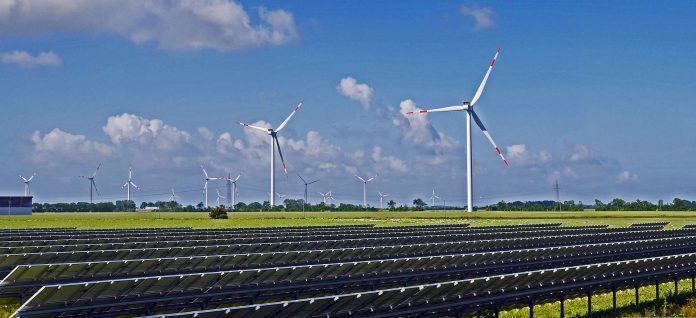New report from IRENA and CPI warns that far too little investment is finding its way to the global south.
A joint report by the International Renewable Energy Agency (IRENA) and Climate Policy Initiative (CPI) has revealed record investment in energy transition technology in 2022, though still too little is being done. Highlights from teh report include: –
- Record investment across renewables and energy efficiency.
- Renewable spend still 40% lower than needed for 1.5C climate change.
- Investment focus on too few technologies opens up big risks.
- Low levels of investment remain problem in Global South.
Renewable energy investment last year reached $500bn around the world, a record level of annual investment, though still 40% below the level needed each year this decade if the world is to keep climate change below 1.5C.
At the same time, greater investment in off-grid renewable solutions are falling far short of the $2.3bn needed each year to support decentralised energy vital to achieving international development aims and delivering universal energy.
Furthermore, investments have become concentrated in specific technologies and uses. Global Landscape of Renewable Energy Finance 2023, the third edition of the biannual joint report by IRENA and CPI, also notes that in recent years solar power and onshore and offshore wind have received around 90% of all renewables investment. This means that other energy transition efforts are failing to fund less mature electricity generating technologies as well as other sectors like heating, cooling and system integration.
North-south divide
The report shows that geographic disparities have increased significantly. Around 70% of the world’s population, mostly residing in developing and emerging countries, receive only 15% of global investments. Sub-Saharan Africa received less than 1.5% of the amount invested globally between 2000 and 2020. In 2021, investment per capita in North America was 179 times that of Sub-Saharan Africa.
As a result, the report stresses that lending to developing countries looking to deploy renewables must be reformed, with a much strong role being given to public financing, beyond mitigating investment risks. To achieve that at a time of limited public funds, the report calls for stronger international collaboration, including a substantial increase in financial flows from the global north to the global south.
IRENA director-general, Francesco La Camera, said: “For the energy transition to improve lives and livelihoods, governments and development partners need to ensure a more equitable flow of finance, by recognising the different contexts and needs. This joint report underscores the need to direct public funds to regions and countries with a lot of untapped renewables potential but find it difficult to attract investment. International cooperation must aim at directing these funds to enabling policy frameworks, the development of energy transition infrastructure, and to address persistent socio-economic gaps.”
Barbara Buchner, CPI’s global managing director, said: “The path to net zero can only happen with a just and equitable energy transition. While our numbers show that there were record levels of investment for renewables last year, a greater scale-up is critically needed to avoid dangerous climate change, particularly in developing countries.”
Click here to download the report, Global Landscape of Renewable Energy Finance 2023.


















